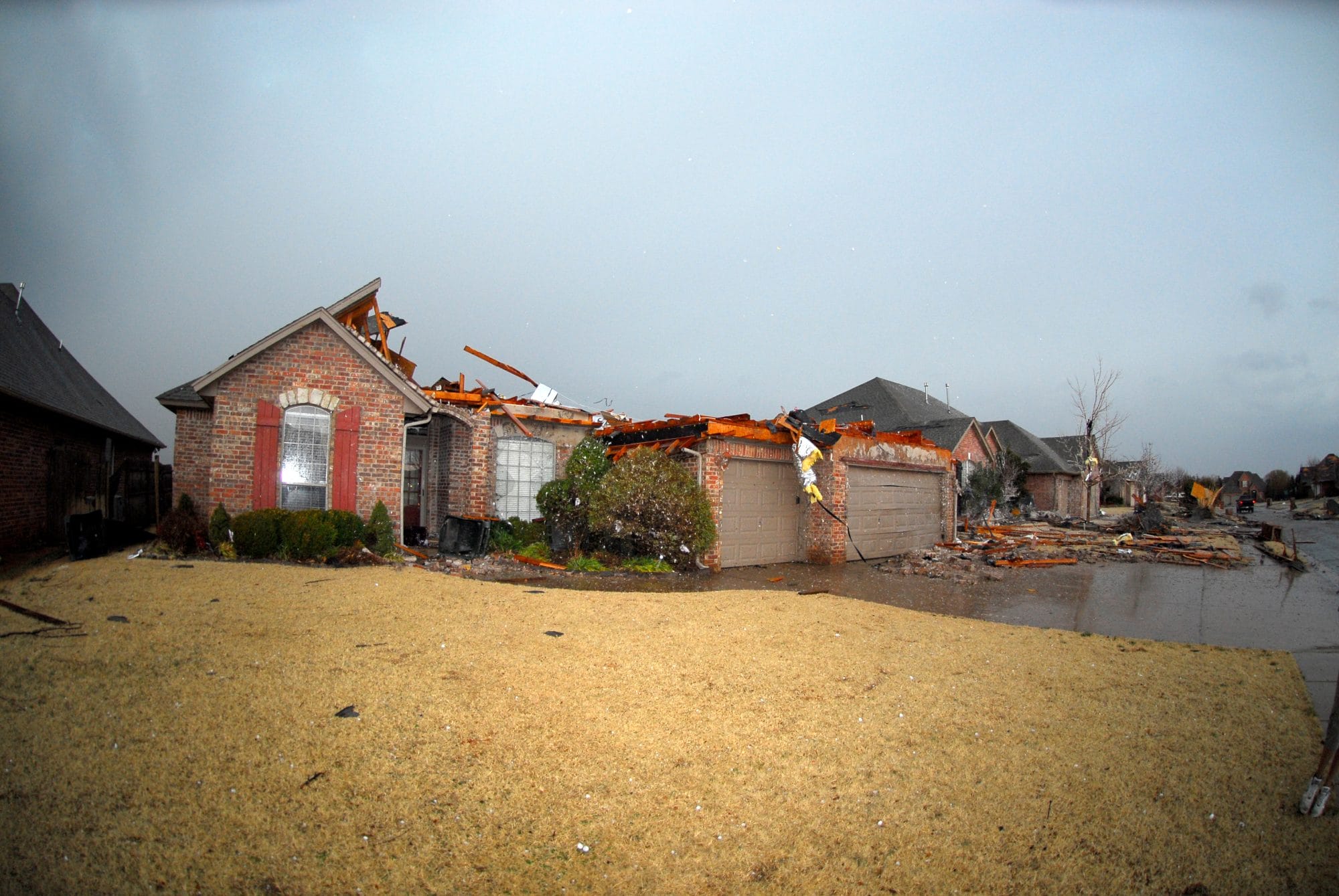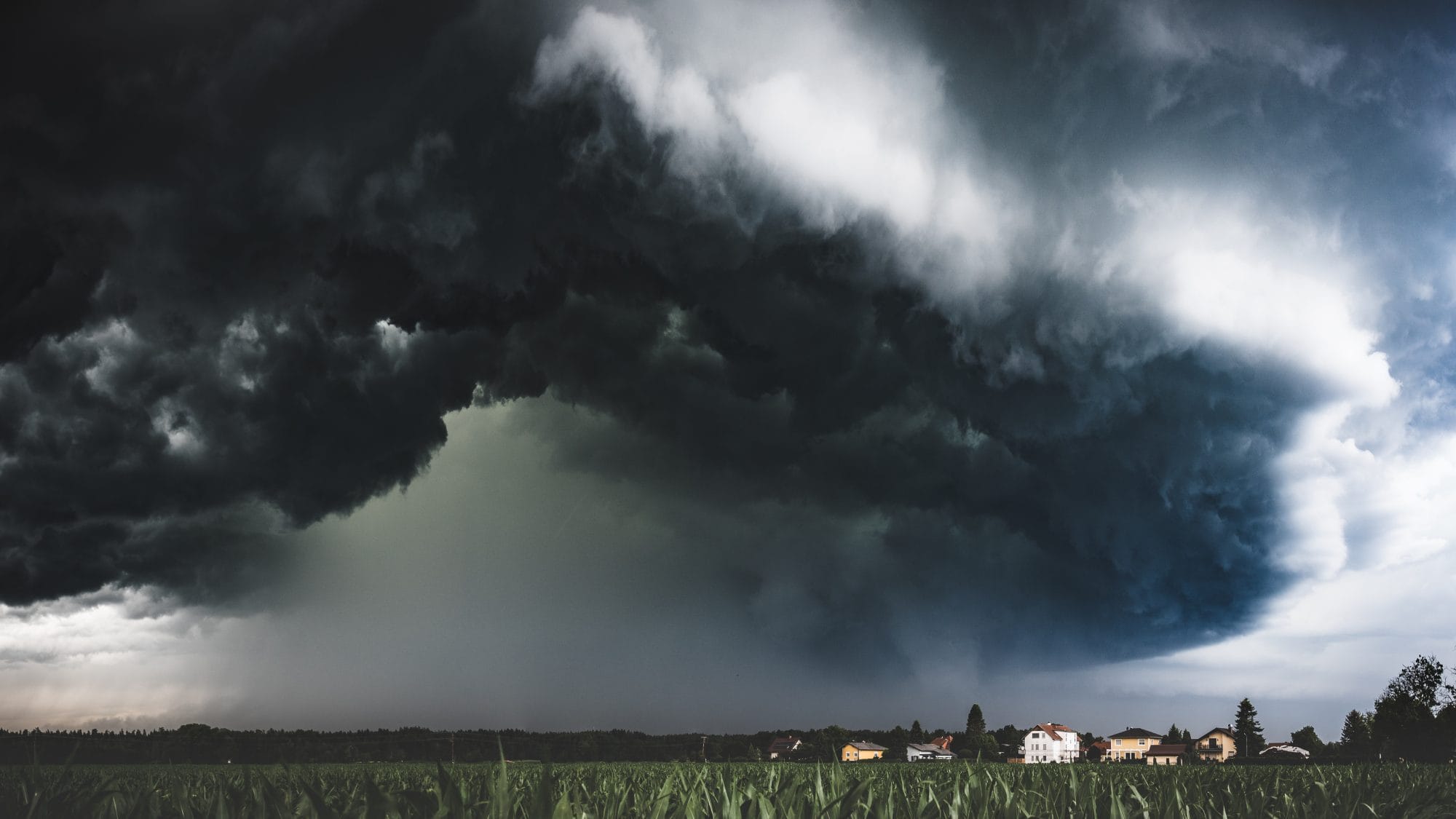Two Storms, One Great Hope
If you live in Central Arkansas, you probably remember where you were one year ago on March 31st of last year. I was at a friend’s office around 2:00 PM that Friday afternoon when my wife, Carolyn, called me. “There is a bad storm coming, and you need to get home,” she told me. I pulled out my phone to check the weather and realized that there wasn’t enough time for me to get home. Not long after, I heard the sirens begin. It didn’t look good, and I saw that the tornado’s path was near our home. While talking to Carolyn, we lost cell service. Like never before, I felt the urgency to get home.
In a rush, I got in my car and drove home as quickly as possible. With every passing second, the tension rose. Is my wife okay? Is our home okay? Finally, I turned onto our street and, from a distance, saw that our house was intact. I found Carolyn and a nextdoor neighbor still huddled in the most interior room of our home. They were relieved that I was home and the storm had passed, but I soon discovered just a couple of blocks away that trees were down. Some neighborhood streets were impassable, and the primary routes in and out of the neighborhood were blocked. With electrical power and cell service out, our contact with the outside world was limited to a battery-operated weather radio, but I felt grateful Carolyn was alright and that the storm had passed over us.
The following day, I saw the extent of the tornado’s damage. It overwhelmed me to see how destructive the storm’s path was. I was amazed by how well first responders, community leaders, and churches mobilized to help those affected in our city. A year later, Governor Sanders expressed it well when she said that she was “proud of the progress that the state has been able to make in its efforts to recover from the disaster, though work remained to be done.” We continue to pray and support those who lost so much on that day.

An Even Greater Storm
The day after the tornado, the Holy Spirit whispered something to me that I will never forget. “As bad as this physical destruction is, there is another storm causing even greater harm to our community.” Immediately, I understood what He meant. The storm He was talking about has been responsible for deaths from youth violence and suicide, mental illness, loneliness, depression, and the fracturing of marriage and family in our communities.
In his latest book, Get Married: Why Americans Must Defy the Elites, Forge Strong Families, and Save Civilization, sociologist Brad Wilcox presents compelling research on the importance of healthy marriages and families for the flourishing of a community.
From our nation’s growing happiness divide to surging deaths of despair to the stagnant state of the American Dream—questions of marriage and family are often better predictors of outcomes for people than the topics that currently dominate our public conversation—like race, education, and government spending.
How are kids faring in an America that values marriage much less than it used to? Is it really true, as University of San Francisco professor Lara Bazelon recently told us in the New York Times, that divorce is “liberating, pointing the way toward a different life that leaves everyone better off, including the children”? It turns out that children whose parents get divorced are heading “toward a different life”—but not in the direction Bazelon would like us to believe. They are almost twice as likely to be suspended or expelled from school, 75 percent more likely to use drugs, and about half as likely to graduate from college. To be sure, many kids from divorced homes turn out just fine (and there are ways that divorcing parents can help mitigate the risks of these outcomes), but the data certainly don’t tell us that children are left “better off” by having their parents call it quits.
Likewise, having the benefit of a family headed by stably married parents, where both parents are on hand to love you day in, day out, share life’s joys and frustrations, and devote their combined financial resources to your home, your extracurriculars, and your schooling ends up being the ultimate privilege for the millions of today’s boys and girls across America who are fortunate enough to grow up in an intact family.
The Hope of Easter
Isn’t it in God’s timing that we celebrated Easter in Central Arkansas one year after the tornado that wreaked havoc on our communities? In the aftermath of the literal storm that swept through our communities and resulted in many rising up to offer help and support, there are those today who are responding to the relational tornado carving a destructive path through our marriages and families.
In an article for our blog on the Good in a flourishing community, we wrote how:
God designed marriage and the family to be foundational for flourishing, because through them we image the kind of relationship the Father, Son, and Spirit have with one another – personal, connected, intimate, supportive, and serving. The key to building these kinds of relationships is the Church. Here’s how Amy L. Sherman explains the importance of churches to flourishing relationships (specifically marriages) in Agents of Flourishing:
Why churches? Churches aren’t the only ones trying to strengthen marriages. A variety of secular non-profits work at this, too, some with government funding. But churches bring some unique assets to the table. […] Churches are “sticky in a way that nobody else is sticky,” explains J.P. De Gance. A person attending a church program about marriage could be invited over by a congregant for a meal, asked to join another couple at a Sunday service, or welcomed into a small group. Congregations, he says, are eager to help people connect. At churches, “You’ve got a deep reservoir of your membership passionate about forming one-to-one, life-changing relationships, which produces the stickiness that churches have over other NGOs,” De Gance explains.
John Stonestreet of the Colson Center agrees. Churches are “scattered, decentralized, and localized” social institutions, he notes. They are positioned to identify and connect with specific couples that are struggling in their marriages.
Religious communities provide couples with a beautiful vision about what marriage can and should be. They support couples in their relationships and teach and encourage healthy marriage skills. Congregations can also be placed where younger married couples rub shoulders with older ones. This provides access to mentoring for younger adults by more experienced couples.
Like no other institution, churches have the unique opportunity to be the shelter from the storm that is destroying homes, marriages, and families in our city. As the Church in Central Arkansas, we can be such a shelter. We can:
- Unite in prayer over marriages and families damaged by this crisis in our communities.
- Develop intentional and strategic ministry plans to share the gospel and give hope to the people of our city through marriage and relationship ministry.
- Become a family of families as the Church to the broken and hurt in our communities.

How Will We Respond?
In Get Married, Wilcox writes:
The truth is that religion is generally a force for good when it comes to the quality and stability of married life, men’s and women’s satisfaction with their lives, and the welfare of children. The research tells us that American men and women who regularly attend a church, synagogue, temple, or mosque are significantly happier in their marriages, less likely to end up divorced, and more satisfied with their lives—and their children are more likely to be flourishing.
Above all, it will take courage for ordinary men and women to take a risk on lifelong love in a world where so many forces seem arrayed against strong marriages and families. But the future of the American way of life—our lives, our liberty, and the pursuit of our happiness, rightly understood—depends upon making strong and stable marriages possible for all who wish to open their hearts to lifelong love—and to the children who arise from that union.
Strong marriages are good for the community and for the flourishing future of our city. Yet, despite that truth, a recent U.S. News and World Report article reported that Arkansas had the highest divorce rate in the country in 2022, 60% higher than the national average. The numbers are sobering and are sounding the alarm to the relational storm blowing through neighborhoods in our midst. As we assess the damage, we see—and know by experience—that it is great.
What would it look like for us, as the Church in our city, to be the first responders to this relational storm? What if we worked together as one to respond in such a way to the damage with the one great hope that we have—that the gospel gives us the one great hope for a flourishing future in our city? What if we believed that Jesus is at work through His Church and is calling churches in our city to answer the call of the alarm and the damage we see all around us?
Would we sense the urgency? Would we respond with hope-filled action? I believe we would and we can.
Together we can build a flourishing community!


